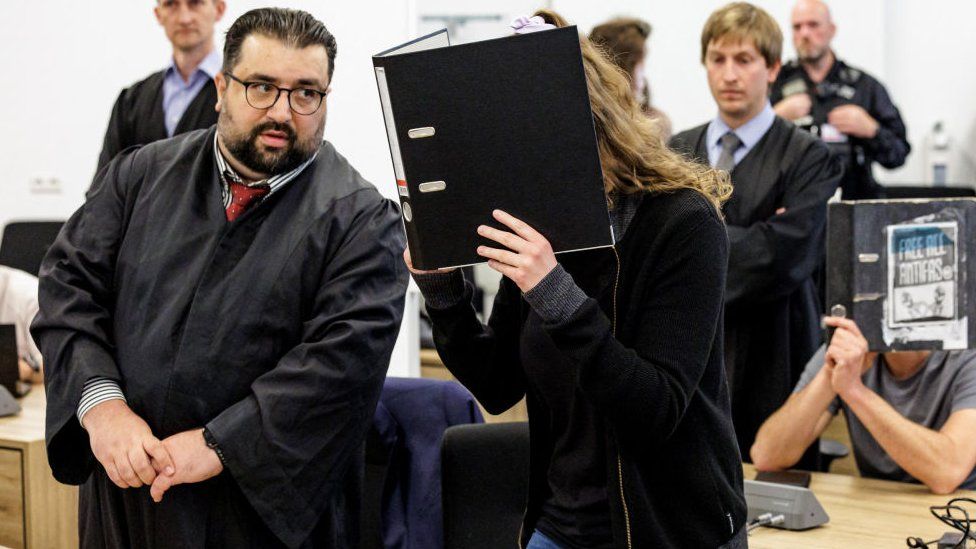German row over jail term for woman who attacked neo-Nazis

The sentencing of a far-left extremist involved in violent attacks against neo-Nazis has sparked controversy in German politics, drawing criticism from both the left and the right. Lina E, the convicted individual, received a prison term of five years and three months but was released pending an appeal after having been in custody since 2020. Three other men convicted with her were also handed jail sentences.
Left-wing protesters took to the streets in several cities to demonstrate against the verdicts, although a large rally in Leipzig was prohibited. The decision to release Lina E after two and a half years in custody, while keeping her second name private, angered some Germans who believe it sends a message that violence against the extreme right is acceptable.
The judge, Hans Schlüter-Staats, acknowledged that opposing right-wing extremists is a commendable motive but stressed that the use of force should be reserved for the state. He deemed Lina E’s actions to be serious criminal acts and criticized her defense lawyers’ argument that the case was politically motivated. Lina E was considered the leader of a far-left group known as the “hammer gang,” which carried out violent attacks against the extreme right using weapons such as hammers, iron bars, and baseball bats.
The group gained notoriety for their brutality, and Lina E’s partner, Johann G, is also suspected of involvement in the attacks. In one incident, they targeted a well-known neo-Nazi pub in Eisenach, assaulting its owner. In another attack, a group of people returning from a commemoration event in Dresden were beaten up, resulting in severe injuries.
Lina E was apprehended in November 2020, and her surname has not been disclosed publicly. Three male members of her gang were sentenced to prison terms ranging from 27 to 39 months. Sabine Volk, a far-right researcher, acknowledged the horrendous crimes committed by the group but highlighted a perceived power imbalance against the far left in eastern Germany, leading some to believe they must take action themselves.
The release of Lina E drew criticism from the police union and the far-right Alternative for Germany (AfD) party, who considered it lenient and a failure of the rule of law. Interior Minister Nancy Faeser warned of an increasing willingness among the far left to resort to violence, although she maintained that right-wing extremism posed the most significant threat to German democracy.
An anti-fascist march scheduled for Leipzig, where Lina E was a student, was banned due to concerns of potential violence. The AfD has seen a rise in opinion polls as dissatisfaction with the coalition government grows, and they have benefited from a backlash against climate activist protests that disrupted traffic in major cities. Former German spy chief Hans-Georg Maassen, known for his right-wing conservative views, ridiculed Lina E’s sentence, arguing that it would embolden far-left activists to carry out further violent attacks.
Picture Courtesy: Google/images are subject to copyright
